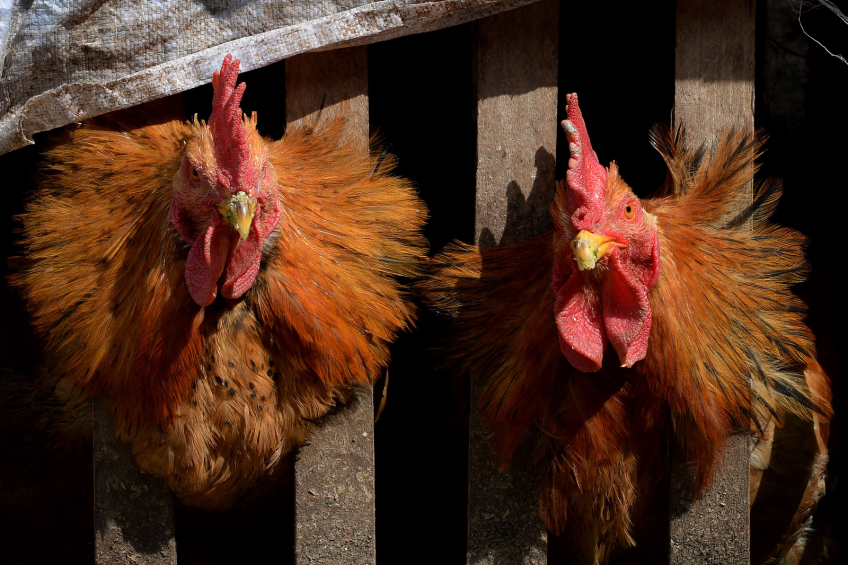Colombian poultry industry challenged by inflation

For the National Federation of Poultry Farmers of Colombia, devaluation brings lasting inflation, distrust in the economy and a loss of purchasing power of Colombians.
The rise of the dollar in Colombia affect imports and some productive sectors, including the poultry industry which imports 80% of its inputs. The country also buys much of its raw material for feed in foreign markets. The poultry industry in Colombia provides an annual output of one million tons of chicken meat.
“For the poultry sector which has a total dependence on grain imports, the depreciation of the Colombian peso becomes a disaster affecting production costs,” said Andrés Valencia Pinzón, chief executive of National Federation of Poultry Farmers, Fenavi.
This is not unimportant, because in 2013 poultry farmers made their foreign purchases with a dollar worth $1,800 and now this same operation will be performed with an American currency worth $2,400 and still in an upward trend.
In his editorial column in the magazine of the official entity of Colombian poultry, Fenavi, the chief executive says that “production costs are increased by 21% and each devaluation of $100 will add five additional points to those costs. So, with higher production costs for this year, and the new tax reform, in sectors that require imports to produce for the domestic market it is expected that adjustments will be made on the sales prices, which will affect the final consumer”.
In the case of yellow maize, poultry farmers have to import about four million tons per year and about one million tons between sorghum, beans, soybeans and soybean meal.
In his column, Andrés Valencia Pinzón estimated that devaluation over 25%, places the Colombian peso alongside Russia and Argentina as those which have lost the most value against the dollar. In his view, the major cause of devaluation is the drop in oil prices, as it has a huge dependency on foreign currency generated from the sale of oil.
“In a country where the gaps in infrastructure, the huge tax burden and institutional inefficiency undermine competitiveness, devaluation becomes the best policy measure and the only way that our entrepreneurs can adequately compete in international markets” he added.
Finally, the chief executive of Fenavi noted that the Bank of the Republic and the National Administrative Department of Statistics, DANE, “will have to go on to explain that in Colombia foods have a component imported that is expensive in terms of the exchange rate and that while there is no agricultural policy intended to replace grain imports it will be impossible to reduce the exposure of food prices to the devaluation”.
Join 31,000+ subscribers
Subscribe to our newsletter to stay updated about all the need-to-know content in the poultry sector, three times a week. Beheer
Beheer











 WP Admin
WP Admin  Bewerk bericht
Bewerk bericht